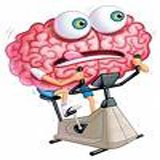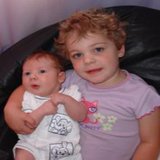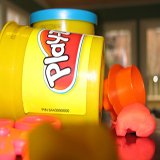Language Development Stages - Skills & What to Do
Many parents have no idea of how to encourage a child through the different language development stages.
Language development in children is a process that starts early in human life, when a child begins to acquire language by learning it as it is spoken and by mimicry.
Language development stages moves from simplicity to complexity. Infant language development start off by babies using their bodies, vocal cries and other preverbal vocalizations to communicate their wants, needs and dispositions.
Yet by four months of age, infant language development has evolved to such an extent that babies can read lips and discriminate speech sounds. Baby language is called "gibberish".
During usual language development stages, language development in toddlers starts off as recall of simple words without associated meaning, but as children age, words acquire meaning, and connections between words are formed.
In time, sentences start to form as words are joined together to create logical meaning. As a person gets older and they progress through the various language development stages, new meanings and new associations are created and vocabulary increases as more words are learned.
The different language development stages in young children are broken down according to age for easy reference.
Language Development Stages: 15 - 18 months
| Skill | What to Do |
| Your toddler language development have evolved to the ability to use approximately six or seven different, identifiable words, and she uses them consistently. She understands many more words that that, of course. Her language if often a mixture of real words and 'jabber', and she may have her own words for people or objects, which she uses consistently. | Make a note of all the words she uses over a 3-day period. You may find that sometimes she jabbers without appearing to use any recognizable words, but in most instances she reliably uses the same word to indicate the same object each time. |
| She is able to listen to instructions, interpret them accurately and then carry out the request, as long as the instructions carry only one piece of information in them. | Ask your toddler to complete an activity that you know is well within her capability, for instance, 'Pass me the cup'. If she is in a responsive mood, she understands what you say and fulfils your request. She does this even though she can't say the words herself. |
| She effectively combines aspects of both verbal and non-verbal communication in order to express her basic needs and desires to you; she will persist until you show her that you understand. | Instead of trying to anticipate her request, wait for her to say it to you. If there is something that your child specifically wants - for instance, for you to switch on the television - she will point to it and say the word simultaneously. Give her plenty of time to find the words she needs. |
Language Development Stages: 19 - 21 months
| Skill | What to Do |
| She still uses single words but now they are often put together to form a short two-word phrase. Each phrase has its own meaning, and is used appropriately by her. | Help her combine words by replying with a phrase when she uses a single word. For instance, when she asks 'Daddy?', you can say 'Where's Daddy?' and then reply. Let her know how pleased you are when she forms phrases like this. |
| Your child loves spotting familiar objects in picture books, as long as there are not too many objects on the page, and also identifying familiar people in family photographs. | Sit your child on your knee or beside you and let her turn over the pages of her favorite picture book. She points out all the different people, animals and objects and tries to name them. If she hasn't told you the word for the picture after a few seconds, tell her what it is. |
| Conversations interest your child. She no longer says what she thinks the moment it enters her head, but instead is ready to listen and to wait for a gap before speaking. | Chat to your child about the toys she is playing with, then look at her while pausing for her to respond verbally. You'll find that her ability to time her comments to respond to yours increases around this age, and she is more prepared to take turns while talking. |
Language Development Stages: 22 - 24 months
| Skill | What to Do |
| Your child's awareness of herself as an individual gradually increases at this age and she can now reliably name the main parts of her body. | Say to her 'Show me your feet' and wait for her to point to them. Do the same for her eyes, ears, nose, mouth and hands. You'll find that she knows most of these, and with your help she'll learn the rest over the next few months. |
| As a result partly of her increased vocabulary and partly of her increased understanding, your 2-year-old can name a set of everyday objects that are placed in front of her. | Set out around six familiar objects on a try - a pencil, a ball, a cup, a teddy, a spoon and a book. Bring the tray over to your child, point to one of the objects and ask her 'What's that?' She can probably name most of them. |
| She will probably become more interested in what others are saying, and will silently listen to conversations even though she is not being addressed directly. | At times, encourage your toddler to stand beside you when you chat to a friend. Of course, she'll eventually lose interest and want to play on her own, but while she's listening she'll be extending her language skills. |
Language Development Stages: 25 - 30 months
| Skill | What to Do |
| She loves you reading stories to her just before she goes to sleep. It's not just the intimacy of the story-telling process that she likes but also the content of the story itself. | Tuck her up in bed at night, and then sit on the bed beside her and read her a story. Make sure you pick one that isn't too scary and that doesn't get her too excited. She relaxes as she listens to you, so this is good preparation for her to fall asleep. |
| Her understanding of spoken language has developed considerably. She is able to ask a question, listen attentively to the answer and then make sense of what was said to her. | When she asks you a question, position yourself so that you are face-to-face with her when you reply. Do your best to keep her attention if she starts to become distracted by something else in the room. Ask her to repeat what you told her. |
| Her memory has improved to the extend that she cal recall small amounts of personal information and can reliably relay it to a familiar child of adult. | Encourage your child to respond to simple questions about herself from friends and members of the family - for example, telling them her name and age. However, there may be times when you child is so overcome with shyness that she can't manage this. Don't pressurize her to speak if she is embarrassed by the situation. |
Language Development Stages: 31 - 36 months
| Skill | What to Do |
| Pronouns such as 'I' and 'me' start to feature regularly in her speech. She doesn't always use them properly, often using 'me' instead of 'I'. | Demonstrate the correct form of speech, without criticizing her wording. For instance, when she announces to you that 'me want juice now', you could respond by saying 'I would like some juice too'. This gives a good example of language for her to copy. |
| By now her vocabulary has extended to at least a thousand words that she can use both confidently and appropriately. | Spend some time just observing your child and listening to her when she plays with her friends or talks to her siblings. You'll probably be surprised at the wide range of words se uses that she has learned from a rich variety of sources in her life. |
| She begins to understand the basic grammar of language and that it follows rules. She can't actually explain what these rules are but she can usually apply them. | Make one hand into a funny shape and tell her you have called it, for example, a 'pid'. Then make both hands the same shape and say 'Here are two ...' She'll probably reply 'pids', proving the understands the rule of adding an 's' to a word to make it plural. |
Even though most children begin to vocalize and eventually verbalize at various ages and at different language development stages, they learn their first language without conscious instruction from parents or caretakers.
Language development stages is a seemingly effortless task that grows increasingly difficult with age. Of course, before any learning can begin, the child must be biologically and socially mature enough.
Find It!
Can't remember where you read something specific? Just type in your search term in the box below and your specific topic will be returned to you instantly.









